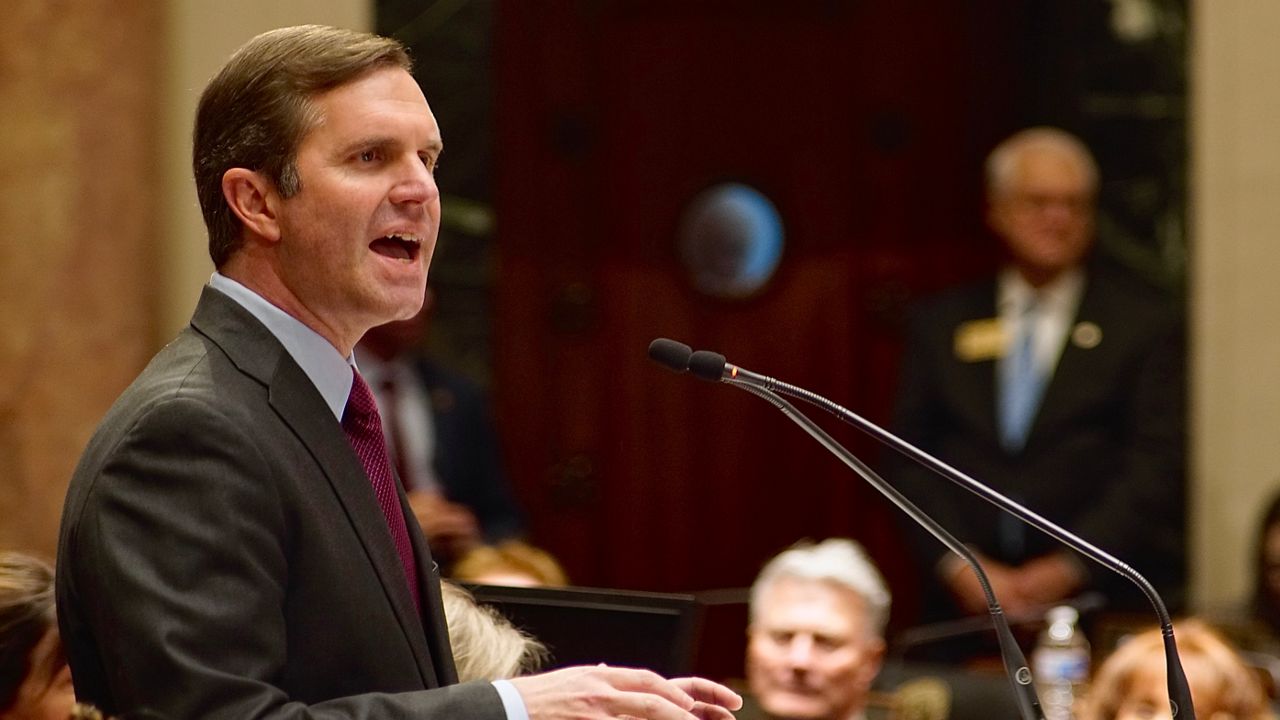FRANKFORT, Ky. — Kentucky's Democratic governor vetoed a GOP-backed criminal justice bill that would impose harsher sentences for a range of crimes, saying it would saddle the state with sharply higher incarceration costs.
The sweeping measure also would criminalize homelessness by creating an “unlawful camping” offense, Gov. Andy Beshear, D-Ky., said in his veto message late Tuesday.
The bill's lead Republican sponsor, state Rep. Jared Bauman, R-Louisville, said he looked forward to continuing the discussion when the GOP-dominated legislature meets again on Friday and next Monday — the final two days of this year's legislative session. Lawmakers will take votes to override gubernatorial vetoes.
The bill, which spurred some of the most contentious debates of the session, would make a multitude of changes to the state’s criminal code, enhancing many current penalties and creating new offenses.
Supporters portrayed the bill as a necessary policy shift that would do more to hold criminals accountable and to make communities safer. Opponents warned the measure would carry a hefty price tag for taxpayers with no assurances that the tougher approach would lower crime.
One prominent feature of the bill would create a “three-strikes” penalty that would lock up felons for the rest of their lives after committing a third violent offense.
Beshear, a former state attorney general, focused on the financial implications in his veto message, saying it would lead to significantly higher incarceration costs without any additional appropriations.
“Despite the tremendous fiscal impact House Bill 5 would have on the Department of Corrections and county governments, the General Assembly provided no fiscal impact analysis with the bill,” he wrote.
The fiscal note attached to the legislation said the overall financial impact was “indeterminable” but would likely lead to a “significant increase in expenditures primarily due to increased incarceration costs.”
Beshear noted that he liked parts of the measure, including provisions requiring the destruction of firearms used in murders, making carjacking a standalone crime, and allowing the state parole board to require parolees to participate in an “evidence-based program” designed to reduce violence. Those provisions should have placed in separate bills, the governor said.
The sweeping measure passed by wide margins in the Republican supermajority legislature. In his statement after the veto, Bauman said the measure is aimed at “providing law-abiding citizens a sense of safety, security and protection. These individuals, as well as those who are willing to work for a second chance, are our priority.”
The bill’s supporters focused mostly on urban crime in pushing for tougher policies. A law enforcement report released last year showed that overall serious crime rates fell across Kentucky in 2022, with declines in reports of homicides, robberies and drug offenses.
Opponents said the measure failed to delve into the root causes of crime and would put more strain on overcrowded jails.
The section stirring some of the most heated debate would create an “unlawful camping” offense applied to homeless people. It means people could be arrested for sleeping or setting up camp in public spaces — whether on streets, sidewalks, under bridges, or in front of businesses or public buildings. A first offense would be treated as a violation, with subsequent offenses designated as a misdemeanor. People could sleep in vehicles in public for up to 12 hours without being charged with unlawful camping.
Several thousand people experience homelessness in Kentucky on a given night, advocates say.
The measure would add to the list of violent crimes that require offenders to serve most of their sentences before becoming eligible for release.
Another key section aims to combat the prevalence of fentanyl by creating harsher penalties when its distribution results in fatal overdoses. Fentanyl is a powerful synthetic opioid seen as a key factor in the state’s high death toll from drug overdoses.
Another provision would offer workers and business owners criminal immunity in cases where they use a “reasonable amount of force” to prevent theft or protect themselves and their stores.



